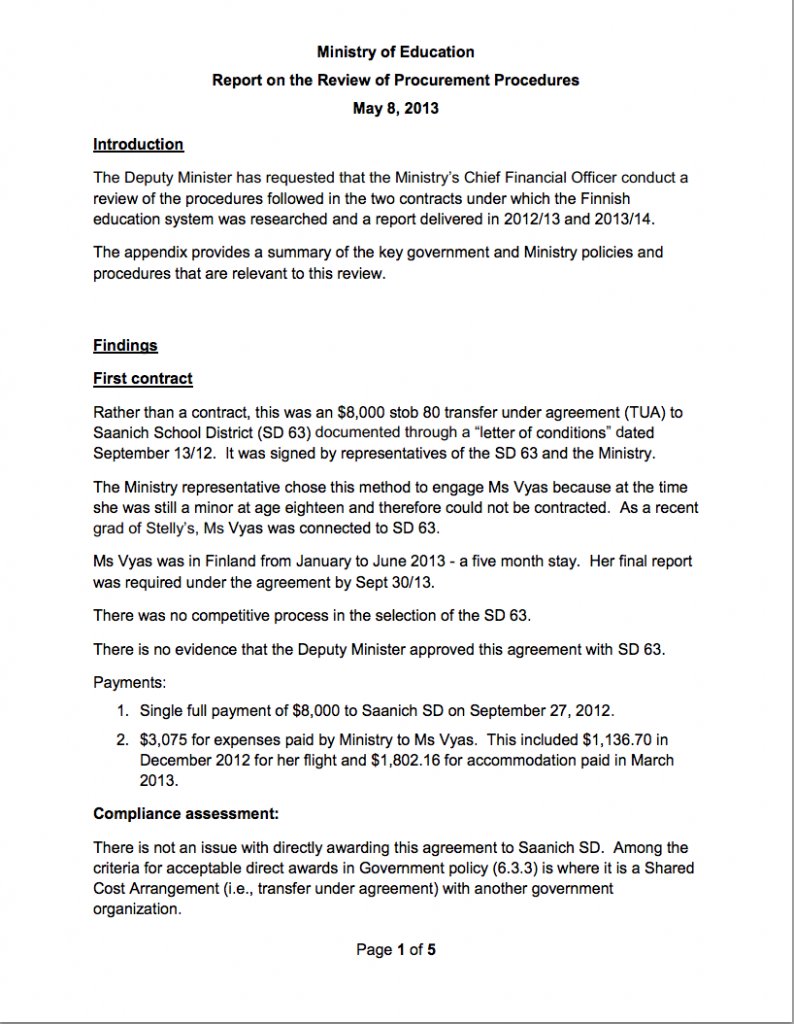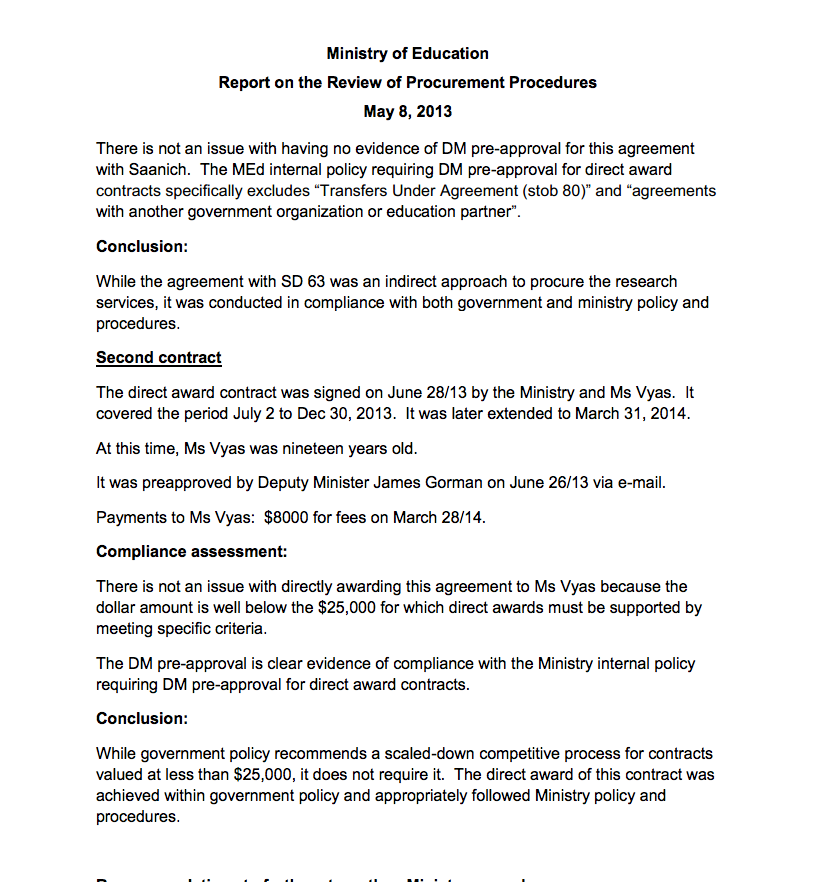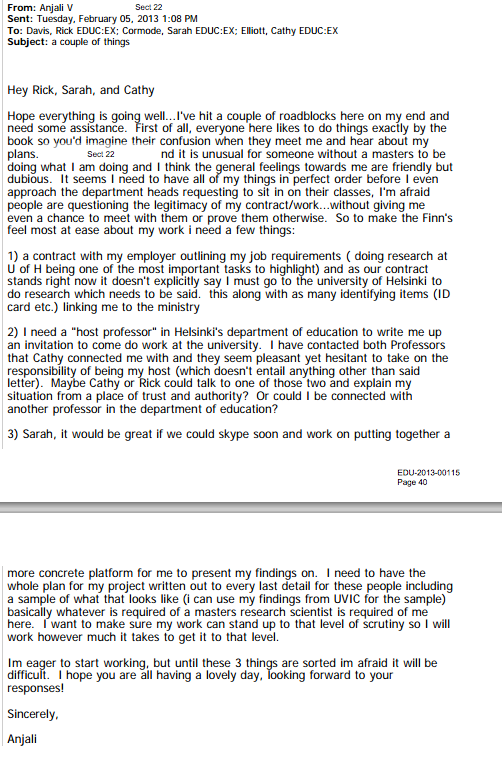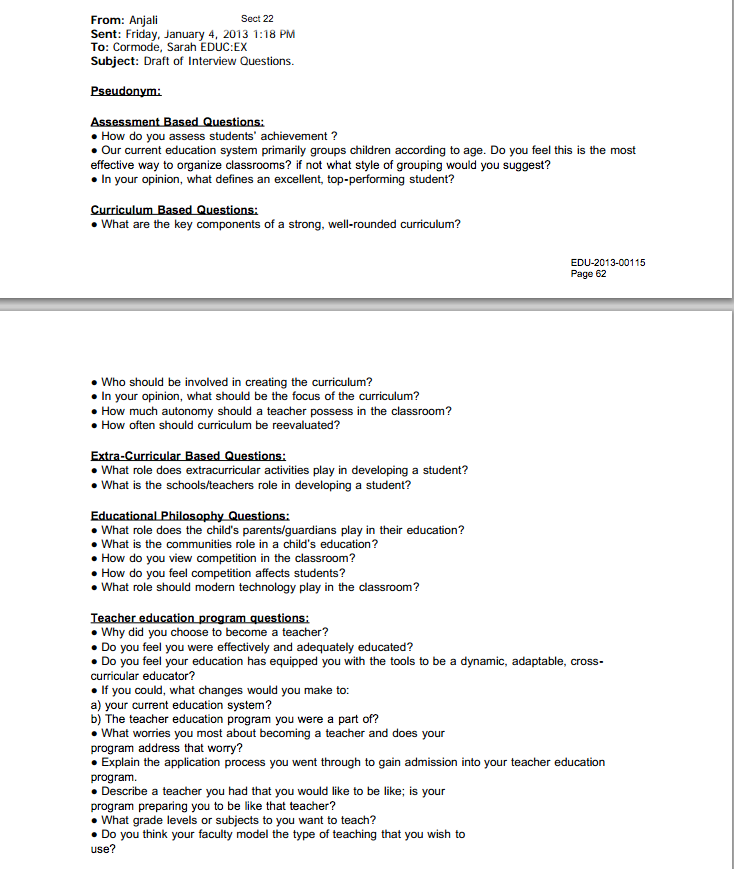Published in Rabble.ca on Friday, September 12, 2014 as:
B.C. schools could be open Monday, if the government wanted
Public schools in British Columbia could be open Monday, if the government wanted.
On Wednesday, in nearly unanimous fashion, members of the British Columbia Teachers’ Federation voted to walk from the picket lines into their classrooms, if the B.C. Liberal government would agree to binding arbitration on all issues, except the most contentious, class size and composition, which is currently before the courts.
Prior to the teachers’ vote government rejected the idea, twice. Education Minister Peter Fassbender called the teachers’ effort to get the schools open by going to binding arbitration, “absolutely silly” and “a ploy.” The former advertising salesman who has been the face of a formidable government PR campaign seemed uncharacteristically perturbed.
In recent weeks, the government’s strategy has become increasingly transparent. Forcing teachers to choose between financial hardship, perhaps ruin, or protecting court victories over a government that stripped class size and composition language from their contract 12 years ago.
The B.C. Supreme Court ruled in 2011 that the provincial government infringed on teachers’ Charter rights when it stripped class size and composition language from their contract in 2002. Justice Susan Griffin gave the government a year to solve the problem.
In 2012, the legislature enacted new legislation that had same effect as the old and, in January 2012, Justice Griffin’s ruled in favor of the teachers again.
Former crown prosecutor Sandy Garossino told Global TV,
“Over and over and over again, [Justice Griffin] goes through a litany of examples of where the government really never intended to negotiate in good faith with the union at all. It’s very hard to get past that ruling, and it really does in my view cast a completely different view on the nature of the negotiations that are going on now. The credibility of the government is certainly in question.”
Government is appealing Justice Griffin’s decision and it is scheduled to be heard next month by the B.C. Court of Appeals.
Meantime, government wants to negotiate its way out of court losses by insisting teachers accept a contract clause, known as E80, which the union and legal experts say abrogates teachers’ court victories requiring government to restore class size and composition language to teachers’ contracts. E80 is a poison pill the union refuses to swallow.
Throughout negotiations government has argued that B.C. teachers’ demands are unaffordable. It would be more accurate to say that the B.C. Liberals have prioritized cutting taxes for the rich and corporations over providing adequate funding for public services such as education and child welfare.
The key factors in affordability are size of the economy and tax rates.
B.C. Liberals waltzed into the legislature in 2001 and started an unprecedented program of inequitable tax cuts. As a result, B.C. now has a regressive tax system. A Broadbent Institute report released this week points out that in the B.C. the poor are now paying more in all taxes as a percentage of income than the rich.
B.C. Liberals’ tax cuts over the past 10 years have benefited the richest 1 per cent of British Columbians to the tune of $41,000 per year, while the bottom 40 per cent have benefited by an average of $200 per year.
Both the Canadian Centre for Policy Alternatives and the Conference Board of Canada agree that despite the elimination of the provincial deficit and the recently announced $353 million surplus, overall spending as a share of the provincial GDP is shrinking and will reach a record low in 2017.
In August, the Conference Board report “British Columbia Fiscal Snapshot: Back on Solid Groupnd” said the B.C. government will have to spend $1.6 billion more than it has budgeted on education to maintain a constant level of spending over the next three years.
With the B.C. near the bottom in provincial per student education funding and B.C. teachers near the bottom in average salary, government has budgeted 0.6 per cent increases for K-12 education the next three years. That’s not a typo.
While the provincial budget conservatively projects revenue increases at 8 percent annually, it has budgeted less than a one per cent annual increase in the budget for B.C. schools.
The current B.C. budget projects the economy to grow by almost 20 per cent over the next five years, before inflation. And the government estimates teachers’ demands for wages, class size and composition funding would add up to nearly 15 per cent over same period.
What Minister Fassbender really means when he says the province cannot afford teachers’ demands is that government has not budgeted enough to education to meet teachers’ demands.
The funding model for public education in B.C. reflects the ideological principle that more of the public’s collective wealth should be devoted to maximizing private profits rather than serving public needs.
The teachers have proven they’re serious about getting back to work. The B.C. Liberals remained intractable in their devotion to an ideology that is fundamentally anti-social.



